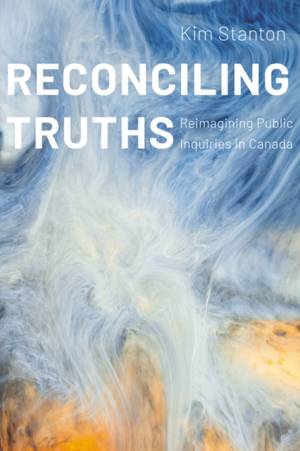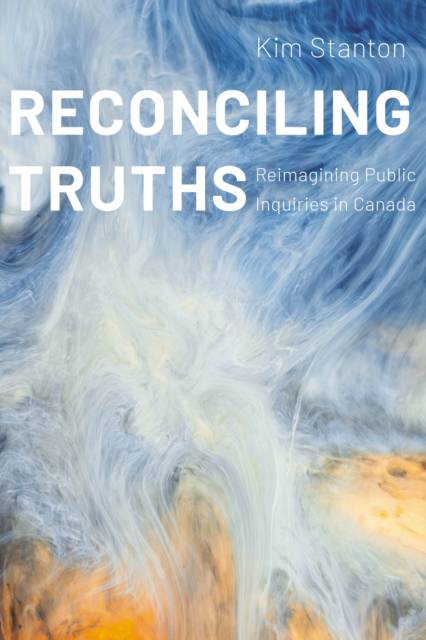
- Afhalen na 1 uur in een winkel met voorraad
- Gratis thuislevering in België vanaf € 30
- Ruim aanbod met 7 miljoen producten
- Afhalen na 1 uur in een winkel met voorraad
- Gratis thuislevering in België vanaf € 30
- Ruim aanbod met 7 miljoen producten
Zoeken
€ 48,45
+ 96 punten
Uitvoering
Omschrijving
A forthright analysis of the factors that limit the effectiveness of public inquiries. Reconciling Truths traces the contested goals and legacies of public inquiries such as the Truth and Reconciliation Commission and the National Inquiry into Missing and Murdered Indigenous Women and Girls. After generating discussion and recommendations, these formal efforts to name the violence of settler colonialism can fail to directly affect policy change. Kim Stanton provides an in-depth analysis of factors that hamper a commission's ability to achieve its mandate, with practical advice on leadership, process, and how to make future recommendations heard. Acknowledging the risks inherent in their use, Stanton nevertheless contends that inquiries create necessary opportunities to shift public attitudes, a vital first step in the battle for policy change.
Specificaties
Betrokkenen
- Auteur(s):
- Uitgeverij:
Inhoud
- Aantal bladzijden:
- 340
- Taal:
- Engels
- Reeks:
Eigenschappen
- Productcode (EAN):
- 9780774866668
- Verschijningsdatum:
- 4/10/2022
- Uitvoering:
- Paperback
- Formaat:
- Trade paperback (VS)
- Afmetingen:
- 152 mm x 229 mm
- Gewicht:
- 510 g

Alleen bij Standaard Boekhandel
+ 96 punten op je klantenkaart van Standaard Boekhandel
Beoordelingen
We publiceren alleen reviews die voldoen aan de voorwaarden voor reviews. Bekijk onze voorwaarden voor reviews.











